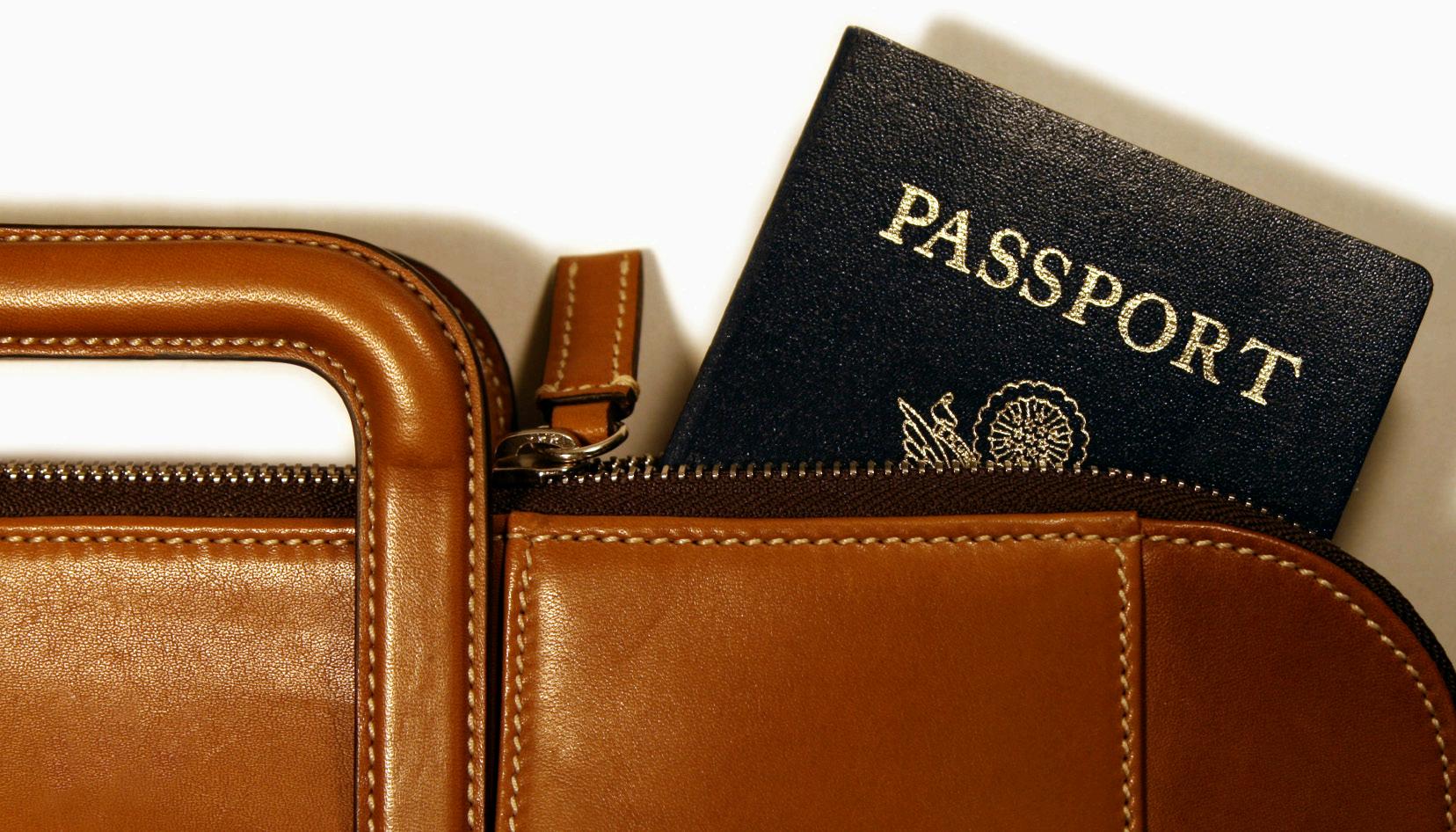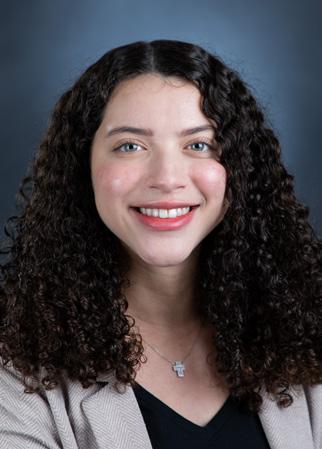INTE RNATIONAL Student Orientation




On behalf of the entire faculty and staff of the College of Applied Studies & Academic Success (CASAS), welcome to our campus and thank you for choosing Liberty University! You are embarking on an exciting adventure in your pursuit of a quality education.

The staff of CASAS, including the International Student Center (ISC), is here to support you as you pursue your educational, personal, professional, and spiritual goals.
As an international student, you are joining almost 800 students from more than 70 countries who make up an important part of Liberty’s student body. Always remember — you have a story to tell about your country, your culture, and your family background. Share that story with others, and you will enhance the learning process of your fellow students. We hope you will grow in your understanding of God’s love for you and will become encouraged by the spirit of excitement found at this university.
You now have access to all the resources, expertise, and faculty you need to succeed in pursuing your chosen field of study, so make the most of your time on campus. We are here to help in any way we can.
DR. BRIAN C. YATES Dean, College of Applied Studies & Academic Success


As a nonimmigrant guest in the U.S., please familiarize yourself with the regulations set by the U.S. Citizenship and Immigration Services (USCIS) for your student (F-1) status. Failure to follow these rules could result in dismissal and loss of student status. A designated school official (DSO) in the ISC is required by the U.S. government to enforce these regulations. Your international student advisor (ISA) and your international student advocate are DSOs. If you have any questions or concerns about the regulations, talk with your ISA.
Records of international students at Liberty University are maintained on the Student and Exchange Visitor Information System (SEVIS) and reported to the USCIS. To maintain your student status with the USCIS and comply with Liberty University policies, you must have a valid, nonexpired Form I-20 at all times. Students are admitted for “Duration of Status.” (“D/S” is often written on the stamp inside your passport.) This status is valid for as long as you are a full-time student or until the “Program End Date” on your I-20. If you need additional time to complete your program, you must contact your ISA to apply for an extension of your I-20.
You must be enrolled full time each fall and spring semester. This means:
• Twelve (12) credit hours per semester for undergraduates.
• Nine (9) credit hours per semester for graduate students.
• Six (6) credit hours per semester for Ph.D. program students.
You must have permission in advance from your ISA to drop below full-time enrollment for any reason. Failure to obtain permission will cause you to fall out of F-1 status. You must also be enrolled full time through the entirety of both fall and spring semesters, and you will be unable to withdraw from a class if it drops you below full-time status.
Please note: If you do not attend class, your professor can give you a grade of "FN" (Failure for nonattendance). Receiving an FN impacts your enrollment and can affect your status. You are not required to
be enrolled during the summer term. Less than full-time enrollment is permissible during your final semester only after completing the Reduced Course Load (RCL) request form and receiving approval from the ISA prior to beginning your final semester. Full-time enrollment is still required for scholarships to post regardless of RCL approval for the final semester.
Only one online class (3 credit hours) may be counted toward your full-time requirement each fall and spring semester. However, once your full-time residential course requirement is met for a given semester, you may take as many online courses as you wish. Keep in mind that there is no summer enrollment requirement, so you can take as many online classes as you wish during the summer semester. (Check credit hour requirements listed to the left.)
If you find that you must extend your stay at Liberty beyond the date specified by the Program End Date on your Form I-20, you must submit an Application for Program Extension to your ISA 30 days before the expected completion date. (Extension of stay will only be approved by the ISA for academic or medical reasons that were unforeseen and not under the control of the student.) Failure to do this will put you out of status with the USCIS.
Keep your passport valid at all times. You will not be eligible for employment, a Social Security card, or a driver’s license if your passport is expired. To renew a passport, you must contact the nearest embassy of your home country or return home.

CPT provides employment that is an integral part of your curriculum, including alternate work/study, internships, cooperative education, or any other type of requirement that is offered by sponsoring companies through cooperative agreements with Liberty. (Contact your ISA for more information.) CPT must be authorized for all internships, regardless of whether they are paid or unpaid. Failure to receive CPT authorization before starting your internship/practicum or off-campus employment is a violation of your F-1 status and could result in your termination.
You must apply for a Social Security Number to work on or off campus. To apply for a Social Security Number, you must first have a job offer. The Human Resources office will help you apply for a Social Security Number if you are offered employment on campus.
Optional Practical Training provides the opportunity for F-1 international students to work in the U.S. following completion of an associate, bachelor’s, master’s, or doctoral degree. OPT allows up to 12 months of employment authorization in the student’s study area to gain practical experience. Students who graduate in an approved science, technology, engineering, or math (STEM) major may apply for an additional 24 months of OPT.
Your visa may expire with no negative consequences while you are in the United States. However, your F-1 visa can only be renewed outside of the United States. A valid visa is required to enter the U.S.
When you leave the United States for a temporary absence, take your passport and I-20 with you. Make sure your I-20 is signed on the second page by an ISA. The ISA’s signature on Page 2 of the I-20 is valid for one year. We recommend that you also take a copy of your transcript and your student ID card. You always need a valid Student (F-1) Visa to reenter the United States. If your visa has expired, you should include a visit to the U.S. Consulate in your travel plans.
You may not work more than a total of 18 hours per week while classes are in session (fall and spring semesters). You may work as many hours as your department allows during summer and whenever school is not in session (e.g., Christmas Break, Fall Break, Spring Break).

All international students must file with the Internal Revenue Service (IRS) by April 15 each year. If you work in the United States, you must complete all required income tax forms for both federal and state reporting of your income after the end of each year. If you were not employed during the previous calendar year, you must file Form 8843 with the IRS.
If you desire to transfer to another school or attend another school following graduation from Liberty University, you must meet with your international student advocate to begin the transfer process.
According to new regulations, dependents (spouse and/or children) in F-2 status may apply for a degree program and enroll in residential courses part time. F-2 dependents who would like to study full time and be eligible to receive institutional scholarships must apply for Change of Status to F-1. Dependents on F-2 status may not be employed on or off campus.
If you move or live off campus, you must notify your ISA of any address change. Liberty University must maintain a valid address on SEVIS at all times.

Liberty University is required by law to notify the USCIS when a student has failed to maintain status, violated immigration laws in any way, changed status, or is no longer attending school. Liberty may refuse admission to students who have not met the USCIS requirements for F-1 status.

International students are automatically enrolled in the university's international student health insurance program. You will see a charge on your student bill that will verify your enrollment for each fall and spring semester. Email mystatus@liberty.edu for more information. International insurance is provided by UnitedHealthcare (UHC) Student Resources.
UHC will send you an email when your card is available to print. Follow these steps to print the card:
• Click on “create My Account now” at UHCSR.com/MyAccount.
• Enter your first name, last name, date of birth, and your Liberty student ID number.
• Click on the ID card logo in the top right corner of your screen.
• Print the most current card.
For coverage dates for the fall and spring semesters, please go to Liberty.edu/ISC. The deadline for enrolling your dependents is the Friday of Add/Drop week.
• Recommended: Go to Liberty University Student Health Center in Residential Commons III. The Student Health Center can be reached at (434) 338-7774, or you can call UHC at (800) 767-0700 to find a healthcare provider that is covered by your plan.
• If you are being admitted to the hospital for a procedure, call UHC three days before your scheduled procedure. If you are admitted due to an emergency, you must call within two days following admission.
• If your healthcare provider suggests treatment or testing, ask the medical service provider if they will accept what UHC covers. You can also ask the medical provider what the charges will be and then contact UHC to see what percentage of the charges will be covered.
• You do not have a copay. However, you may be asked to pay your coinsurance at the time of the appointment. Your preferred provider coinsurance is 20 percent of the bill, and United Healthcare Pharmacy (UHCP) has a 20 percent coinsurance for prescriptions (up to a 31-day supply).
• If the medical provider refuses to file a claim, you will need to fill out a claim form that can be found at UHCSR.com/MyAccount. The claim form must be received within 90 days of treatment.
• Inspect the statement and bill.
• If UHC has not paid anything on the bill, contact UHC and the healthcare provider to ask if your claim was submitted.
• After the first $200/$500, UHC will cover 80 percent of preferred providers’ “preferred allowance” and 50 percent of out-of-network providers’ “usual and customary charges” for the year for any procedures and prescription medications. Preventive care is covered 100 percent for preferred providers and 50 percent for outof-network providers.
• Dental expenses
• Vision expenses (eyeglasses or checkups with an optometrist)
• Medical expenses that are above what the insurance company designates as reasonable and customary Students and dependents under the age of 19 may receive dental coverage up to 50 percent, as well as vision coverage, subject to the policy. To determine if a procedure will be paid for, call UnitedHealthcare Student Resources or visit UHCSR.com/MyAccount>Current Coverage Information>Policy Brochure
Liberty University provides a $10,000 accident insurance policy through the Office of Risk Management. (This policy is only applicable to residential students.) Student accident insurance is not intended to replace your primary health insurance, but it does cover accidental injuries such as those related to sports and physical activities. Speak with your international student health insurance representative for more information or visit AGAdministrators.com/Liberty.
A $150 student health fee covers a wide variety of services in the Student Health Center. Please visit LUStudentHealth.com or call the Student Health Center at (434) 338-7774 for more information.

• Check out Liberty.edu/ISC.
•
• Call UHC: (800) 767-0700 | ISC: (434) 592-4118
mystatus@liberty.edu .
Here are some important tips as you begin your studies.
You are required to maintain satisfactory academic progress throughout your years at Liberty. Failure to do so will result in academic warning, then probation, suspension, and potential dismissal. Below are the minimum grade point averages (GPA) for undergraduate students, which vary by the number of credit hours completed at Liberty:
• Level 1 (0–23.99 credit hours)
1.50 Minimum GPA
• Level 2 (24–47.99 credit hours)
1.65 Minimum GPA
• Level 3 (48–71.99 credit hours)
1.85 Minimum GPA
• Level 4 (72 or more credit hours)
2.00 Minimum GPA
NOTE: Classes may be dropped due to nonattendance, which could affect your status.
Keep in mind that being enrolled full time and failing all courses will result in going directly to academic probation, regardless of the student's GPA.
Plagiarism and cheating are never acceptable at Liberty University. What you don’t think is plagiarism may actually be plagiarism by Liberty’s standards. Check with your professors in advance if you are uncertain about using written work from another source.
Please refer to the Academic Policy Handbook at Liberty.edu/Registrar for more information.
Most students have been assigned a class schedule for their first semester. You are required to meet with your Professional Advisor prior to registering for your second semester of classes. Be sure to schedule an appointment with your advisor before registration opens. (To schedule an appointment, visit Liberty.edu/Advising.) The Course Registration Tool, found on myLU, shows you the courses and other requirements you need to complete your degree.
Remember the Financial Check-In deadline. You are responsible for staying informed about deadlines!
Outside scholarships can be added to your student account, but no additional Liberty University scholarships will be awarded to you unless you are in one of the following categories:
• Athletics
• Honors
• LEAD Scholarship
• Liberty Worship Collective
• Resident Assistant
• Resident Shepherd Scholarships are valid for eight semesters, excluding New Student Book Dollars and the Early Deposit Award, which are one-time awards only. New Student Book Dollars will expire after two months.
The College Level Examination Program (CLEP) and Institutional Challenge Examination (ICE) let you earn college credit for the knowledge you have already acquired. You may be able to take a test in place of some prerequisite classes. For additional CLEP information, go to Liberty.edu/CLEP To learn more about ICE exams, visit Liberty.edu/ICEInfo.
When meeting someone for the first time, stand up, make eye contact, and shake hands briefly and firmly. It is important to remember a person's name. Hugging is common with family and friends at Liberty.
Personal space may vary from person to person but is usually at least one full arm’s length. Entering someone’s personal space may cause them to feel uncomfortable. If the person backs away, do not try to close the gap. Avoid physical contact while you are speaking to someone you just met.
Americans value punctuality. It is important to arrive on time for class, work, meetings, events, or other appointments. If you are going to be late for a meeting, call prior to the meeting and apologize when you arrive. Use a planner or calendar to remember when and where you need to be.
Pronunciation of words and phrases can vary from region to region throughout the United States. If you do not understand what someone says, ask them to say it again more slowly.
Americans are patient when dealing with students learning the English language.
There are many differences between American and foreign foods. Most foreign foods can be readily found in larger cities or international convenience stores. Fast food or takeout food restaurants are also popular. Liberty students often pray (saying a blessing or grace) before eating. You should wait to see if those around you are going to pray before you start eating.
American holidays and annual events reflect the history, traditions, diversity, and culture of the United States. Many offices and banks are closed on federal holidays.
Sports are important for Americans and can be very competitive. Popular sports include baseball, basketball, fishing, football, golf, and swimming. In the U.S., the term “soccer” is used to refer to the sport known as “football” in most other countries.

Americans place high value on individual freedom, self-reliance, and personal achievements.
*Americans are recognized for how highly they value independence. Americans also value critical thinking and the memorization of facts. For this reason, it’s acceptable to question or even disagree with what you read in a textbook or hear from a professor. When you disagree, you are expected to remain courteous, respectful, and ready to back up your position with solid reasoning. Your professors are here to help you learn, and learning to think critically is a very important component of your education.
In the U.S., it is not unusual for a customer service representative to ask, “May I help you?” or “Are you finding everything okay?” This request may be seen as impolite in some cultures, but it is not meant to bring disrespect or discomfort. The representative only wants to ensure your satisfaction.
When waiting in line, be patient and wait your turn. It is considered rude to cut in line or jostle people.
are in a new country with new food, new surroundings, new friends, and a new routine. It is normal that you feel “shocked.” This feeling will pass, but if that adjustment takes longer than it should, you may need support to break through the “shock” and get into a comfortable routine. This chart will help you recognize
In some instances, full-time students living in Virginia may drive using an international driver’s license. Contact the local DMV to find out if you are eligible.
If you become gainfully employed in the U.S., you will need a U.S. driver's license in order to continue driving.
If you already have a valid driver’s license from another state in the U.S. and are currently enrolled as a full-time student at an accredited university, you do not need to get a Virginia driver’s license.
If you are a new student, you must report to your ISA — contact MyStatus@liberty.edu or call (434) 592-4118. This step is required so that your SEVIS record can be registered with the U.S. government. You must wait at least two days after you are registered on SEVIS to apply for a driver’s license — and at least 10 days after your initial entry into the United States.
The name of the legal department in charge of giving you your driver’s license is the Commonwealth of Virginia Department of Motor Vehicles (DMV). Please see the DMV website (DMVNow.com) for more information, or contact the department at:
Note:
3236 Odd Fellows Road, Lynchburg, Va. 24501 phone-alt (804) 497-7100
• Your Virginia driver’s license will expire at the end date of your I-20.
• If you remain in the U.S. on OPT, you will need to take your Employment Authorization Document (EAD) card, I-20 authorizing OPT, and I-94 card or stamp to the DMV to extend your license.
• Temporary documents and photocopies will not be accepted. Allow plenty of time to complete the process.
You must present two documents to prove Virginia residency as well as documented proof of your legal status in the U.S.
Proof of Virginia residency can be an official letter, bill, statement, or envelope from a utility company or bank with your name and local legal mailing address. Acceptable forms to prove your legal presence in the U.S. include:
• Valid passport from your home country
• SEVIS I-20
• Proof of Social Security Number (only if you are or have been employed in the U.S.)





 Dr. Tiffany Cummings Lead International Student Advisor
Dr. Ireremena FelixOtuorimuo Operations Coordinator
David Shin International Student Advisor
Tara Watkins International Student Advocate
Sonja Jung International Student Advisor
Dr. Tiffany Cummings Lead International Student Advisor
Dr. Ireremena FelixOtuorimuo Operations Coordinator
David Shin International Student Advisor
Tara Watkins International Student Advocate
Sonja Jung International Student Advisor
The following locations can assist you in making Western Union money transfers (call ahead if the transfer is over $200): Kroger
2012 Wards Road, Lynchburg, Va. 24502 phone-alt (434) 239-6018
3900 Wards Road, Lynchburg, Va. 24502 phone-alt (434) 832-0304
Liberty students may ride Greater Lynchburg Transit Company buses for free with their Flames Pass. To obtain your Flames Pass, go to ID & Campus Services in the Montview Student Union.

ID & Campus Services: (434) 582-7771
Monday-Saturday, 10 a.m.–9 p.m., and Sunday from noon–6 p.m. (Take the 4B bus from Green Hall)
Hours vary per store (Walk) Hours vary per store (Walk using the pedestrian tunnel)

Preferred allowance (insurance term) is the amount a preferred provider will accept as payment for covered medical expenses that are fully covered by insurance.
The usual and customary charge (insurance term) is the lowest or most reasonable charge that is:
• Usual and customary when compared with the charges made for similar services and supplies.
• Made to persons having similar medical conditions in the locality of the policyholder. The company uses the data from FAIR Health Inc. to determine usual and customary charges. No payment will be made under this policy for any expenses incurred, which, in judgment of the company, are in excess of usual and customary charges.
Preferred care provider (insurance term) is a physician, hospital, or other healthcare provider that has been contracted to provide specific medical care at negotiated prices.
Out-of-network providers (insurance term) are providers that have not agreed to any prearranged fee schedules. Insurers may incur significant out-ofpocket expenses with these providers. Charges in excess of the insurance payment are the insurer’s responsibility.
Freshmen, sophomores, juniors, and seniors are the titles given to students. Each year of college in the United States receives a different classification.
• First-year student: Freshman
• Second-year student: Sophomore
• Third-year student: Junior
• Fourth-year student: Senior
Grade Point Average (GPA) is the term used to define the academic achievement of a student. The scale is from 0.0-4.0.
A semester equals one half of the academic year. The fall and spring semesters last about 16-17 weeks, and there is a summer term that typically lasts 14-15 weeks.
A syllabus is an outline or a summary of the main points of a text, lecture, or course of study. Professors will use this term to describe the outline of the course.
Degree Completion Plans list the required courses necessary to complete a degree. This information can be found at Liberty.edu/DCPs.
Prerequisites are classes that are required before you continue on to a higher level class.